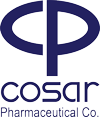
Valsartan Cosar
This drug is an inhibitor of angiotensin II receptors.
Description of Valsartan Cosar
Valsartan Cosar
Valsartan Cosar
Cardiovascular drugs
Cardiovascular drugs < Antihypertensive drugs < Angiotensin II receptor blocker
40 mg tablet
80 mg
160 mg
This drug is an inhibitor of angiotensin II receptors.
Valsartan is used alone or together with other antihypertensive control drugs in the treatment of hypertension.
Valsartan is commonly used to manage hypertension, heart failure, and nephropathy associated with type II diabetes, particularly in patients unable to tolerate ACE inhibitors. ARBs such as valsartan have been shown in a number of large-scale clinical trials to improve cardiovascular outcomes, including reduced risk of myocardial infarction, stroke, progression of heart failure, and hospitalization.
Group D
Do not use: There is evidence of the risk of fetal death with taking this medicine during pregnancy. This evidence is obtained through research, market experience or human studies. The benefits of the medication against possible risks determine refraining from or using this drug during pregnancy
General characteristics of interactions:
Antihypertensive agent
Decreased perfusion or renal function
Exacerbation of hyperkalemia
Angiotensin II type 1 antagonist
Category X interactions to avoid:
Reducing the effects of drugs by valsartan:
Angiotensin II
Reducing the effects of valsartan by drugs:
Amphetamines, Brigatinib, dexmethylphenidate, herbs (hypertensive), methylphenidate, non-steroidal anti-inflammatory drugs, yohimbine
Increasing the effects of drugs by Valsartan:
Amifostine, angiotensin-converting enzyme inhibitors, atypical antipsychotic agents [second generation], Bromperidol, cyclosporine (systemic), Drospirenone, duloxetine, hydrochlorothiazide, antihypertensive drugs, products containing levodopa, lithium, nitroprusside, nonsteroidal anti-inflammatory drugs, pholcodine, Potassium-sparing diuretics, sodium phosphates, tacrolimus (systemic)
Increasing the effects of valsartan by drugs:
Aliskiren, combined hepatitis C antiviral products, barbiturates, brimonidine (topical), Dapoxetine, diazoxide, eplerenone, gemfibrozil, heparin, heparin (low molecular weight), herbs (with hypotensive properties), hydrochlorothiazide, nicorandil, pentoxifylline, phosphodiesterase 5 inhibitors, potassium salts, prostacyclin analogs, ranolazine, tolvaptan, trimethoprim
Interference with food:
Food consumption reduces the maximum serum concentration and AUC by 50 and 40%, respectively. Having meal with high fat and calorie content reduces the maximum serum concentration and AUC of the oral solution by about 44 and 8%, respectively.
Remedy: Consume with a steady trend (always with food or always without food).
Refrain from taking this drug with the following herbs:
Licorice, ginseng, ginger, cola
All renin-angiotensin inhibitor drugs may cause serious damage to the fetus and there is even a possibility of fetal death. Therefore, stop taking the medicine immediately if you are pregnant.
Common complications >10%
Central nervous system: dizziness
Renal: Increased BUN
Relatively common side effects (1-10%):
Cardiovascular: hypotension, postural hypotension, syncope
Central nervous system: fatigue, postural dizziness, headache, dizziness
Endocrine and metabolism: increased blood potassium
Gastrointestinal: diarrhea, abdominal pain, nausea, upper abdominal pain
Hematology and Oncology: Neutropenia
Infectious: Viral infection
Neurological, muscular and skeletal: joint pain, back pain
Ocular: blurred vision
Renal: increased serum creatinine, poor kidney function
Respiratory: Dry cough
Take Valsartan exactly as prescribed by your doctor. The doctor may start the treatment with a small amount and then gradually increase the dose according to your condition.
Taking medicine regularly at a certain time of the day can prevent missing a dose and thus the desired therapeutic effects appear faster.
Take the pill with a glass of water. Valsartan does not interfere with food so you can take it at your convenience.
If you forget a dose, take the medicine as soon as you remember. If you are close to the next dose, do not take the missed dose and take the next dose as usual. Avoid doubling the amount of medicine at one time.
During the treatment with valsartan, be sure to be under the supervision of a doctor so that your recovery process can be checked with periodic examinations and tests.
By asking for blood tests, the doctor evaluates the condition of the kidneys and the level of potassium in the blood and monitors your blood pressure.
Before buying and taking any new medicine, inform the pharmacist of taking this medicine to ensure the appropriateness of simultaneous use of the new medication with valsartan.
For instance, the use of some anti-inflammatory drugs and pain killers such as aspirin and ibuprofen may increase the possibility of side effects of valsartan, so their simultaneous use with this medication requires re-adjustment of the dose and further investigation.
A healthy diet and lifestyle, avoiding high-salt foods, daily physical activity, quitting alcohol and smoking, and all the recommendations given to you by the doctor are part of your treatment process, so it is necessary to follow them carefully.
Consumption of alcoholic products during treatment with valsartan increases the possibility of side effects such as dizziness and fainting. Therefore, be sure to consult a doctor about this.
Avoid taking salts containing potassium during treatment with this medicine since the increase in potassium in the blood can cause issues for you.
If you need any kind of surgery or dental services, inform your doctor or therapist of taking Valsartan as some anesthetics may lower your blood pressure more than the normal level.
Treatment with valsartan is usually long-term. Therefore, continue taking the medicine as long as the doctor deems it appropriate.
If you are using combined medicinal products that contain valsartan and hydrochlorothiazide, be sure to inform your doctor about your history of skin diseases and consult them if you notice any skin changes. Moreover, be sure to use sunscreen products and avoid sunbathing.
Store at a temperature below 30 degrees Celsius, in the original packaging, away from direct sunlight and moisture.
